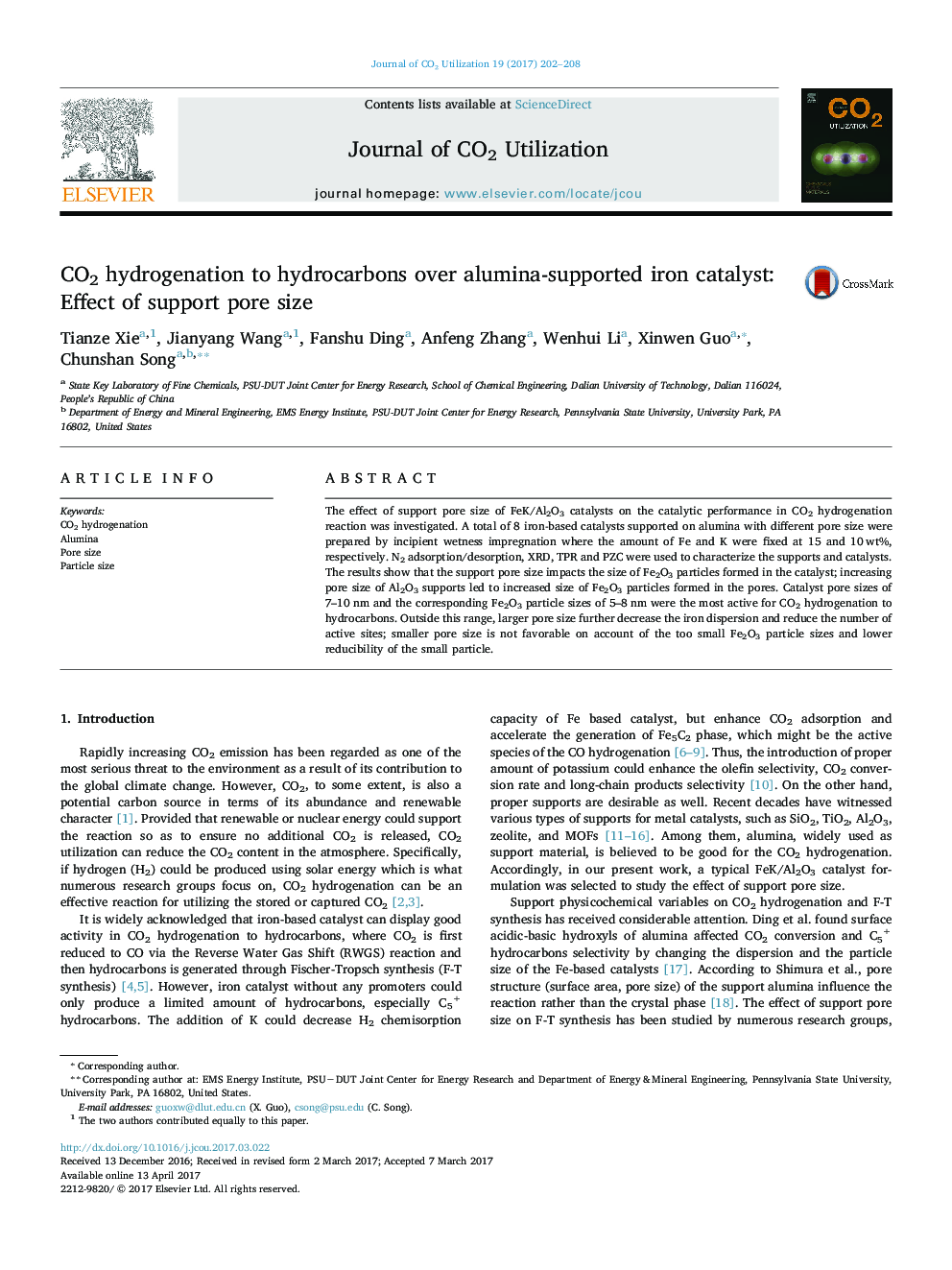| Article ID | Journal | Published Year | Pages | File Type |
|---|---|---|---|---|
| 4757708 | Journal of CO2 Utilization | 2017 | 7 Pages |
Abstract
The effect of support pore size of FeK/Al2O3 catalysts on the catalytic performance in CO2 hydrogenation reaction was investigated. A total of 8 iron-based catalysts supported on alumina with different pore size were prepared by incipient wetness impregnation where the amount of Fe and K were fixed at 15 and 10Â wt%, respectively. N2 adsorption/desorption, XRD, TPR and PZC were used to characterize the supports and catalysts. The results show that the support pore size impacts the size of Fe2O3 particles formed in the catalyst; increasing pore size of Al2O3 supports led to increased size of Fe2O3 particles formed in the pores. Catalyst pore sizes of 7-10Â nm and the corresponding Fe2O3 particle sizes of 5-8Â nm were the most active for CO2 hydrogenation to hydrocarbons. Outside this range, larger pore size further decrease the iron dispersion and reduce the number of active sites; smaller pore size is not favorable on account of the too small Fe2O3 particle sizes and lower reducibility of the small particle.
Related Topics
Physical Sciences and Engineering
Chemical Engineering
Catalysis
Authors
Tianze Xie, Jianyang Wang, Fanshu Ding, Anfeng Zhang, Wenhui Li, Xinwen Guo, Chunshan Song,
